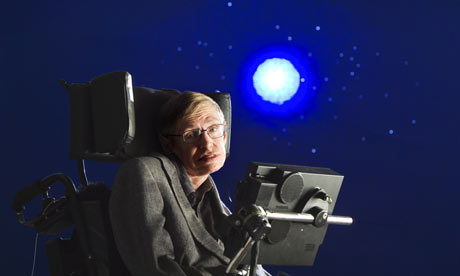
"Matter is constituted of particles, separated by comparatively large distances; it is embedded in empty space. This notion goes back to Leucippus and Democritus, who lived in Abdera in the fifth century B.C. This conception of particles and empty space is retained today ... and not only that, there is complete historical continuity." -- Erwin Schrödinger, physicist, Science and Humanism, 1951
"Is the ancient atomic theory, which is attached to the names of Leucippus and Democritus (born around 460 B.C.), the true forerunner of the modern one? This question has often been asked and very different opinions about it are on record. Gomperz, Cournot, Bertrand Russell, J. Burnet say: Yes." -- Erwin Schrödinger, physicist, Nature and the Greeks, 1954
"The difference between the two men, Democritus and Epicurus, was that Democritus was still modestly aware that he knew nothing, while Epicurus was very sure that he knew very little short of everything." -- Erwin Schrödinger, physicist, Nature and the Greeks, 1954
"... after Democritus the colours of physics were flown by philosophers who had no real interest in science ...." -- Erwin Schrödinger, physicist, Nature and the Greeks, 1954
"The question as to the origin of ancient atomism and to its connexion with modern theory is of much more than purely historical interest." -- Erwin Schrödinger, physicist, Nature and the Greeks, 1954
"We are facing here one of the most fascinating cases in the history of ideas. The astonishing point is this. From the lives and writings of Gassendi and Descartes, who introduced atomism into modern science, we know as an actual historical fact that, in doing so, they were fully aware of taking up the theory of the ancient philosophers whose scripts they had diligently studied. Furthermore, and more importantly, all the basic features of the ancient theory have survived in the modern one up to this day, greatly enhanced and widely elaborated but unchanged....." -- Erwin Schrödinger, physicist, Nature and the Greeks, 1954
"The connexions between Democritus and Newton are evident; and it would be absurd to deny the link between ancient and modern atomism; conceptually, there are narrow ties; historically, an unbroken (if curiously circuitous) line reaches from Leucippus to Rutherford." -- Jonathan Barnes, philosopher, The Presocratic Philosophers, 1982
"The revival of Democritus was what gave a thinker like Gassendi (who, unlike Galileo or Descartes, was no scientific inventor) such an important place in the theoretical grounding of modern science." -- José G. Merquior, philosopher, Foucault, 1987
"Concerning Schrödinger's question: is Democritus or Planck the founder of quantum theory?" -- Hans-Jürgen Treder, physicist, October 1987
"Democritus' atomism in principle is built only on quantities, namely the number and size of the atoms and their velocities. Here Democritus was far ahead of his time in that he took, preceding Galileo in assuming something like a law of inertia, each atom's velocity to be constant, unless a collision with another atom prevents it's free motion. For Democritus, the cosmos is a world of quantities uniquely given which continue their motion according to their own inertia until they are perturbed by other particles of the same nature." -- Hans-Jürgen Treder, physicist, October 1987
"Democritus's notion is compatible with our present belief." -- Leon M. Lederman, physicist, The God Particle, 2006
"... Democritus, held that matter was inherently grainy and that everything was made up of large numbers of various different kinds of atoms. (The word atom means 'indivisible' in Greek.) We now know that this is true -- at least in our environment, and in the present state of our universe." -- Stephen W. Hawking, mathematician, A Briefer History of Time, 2008















